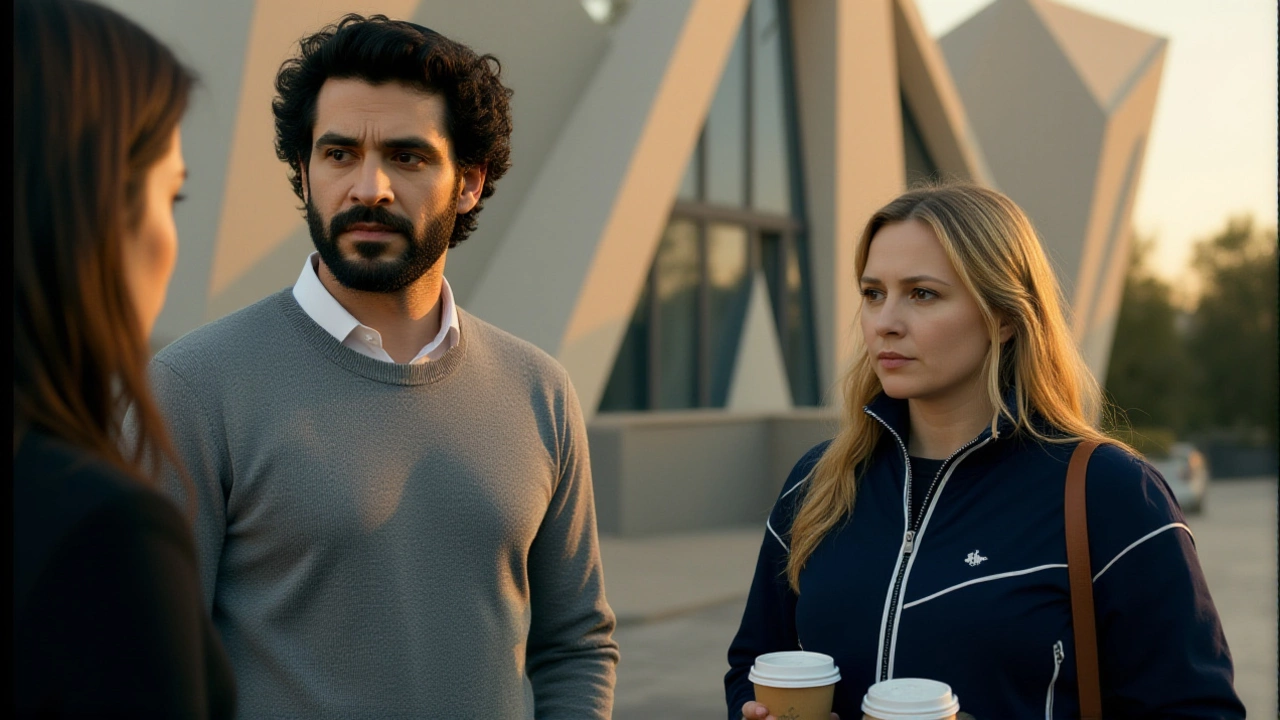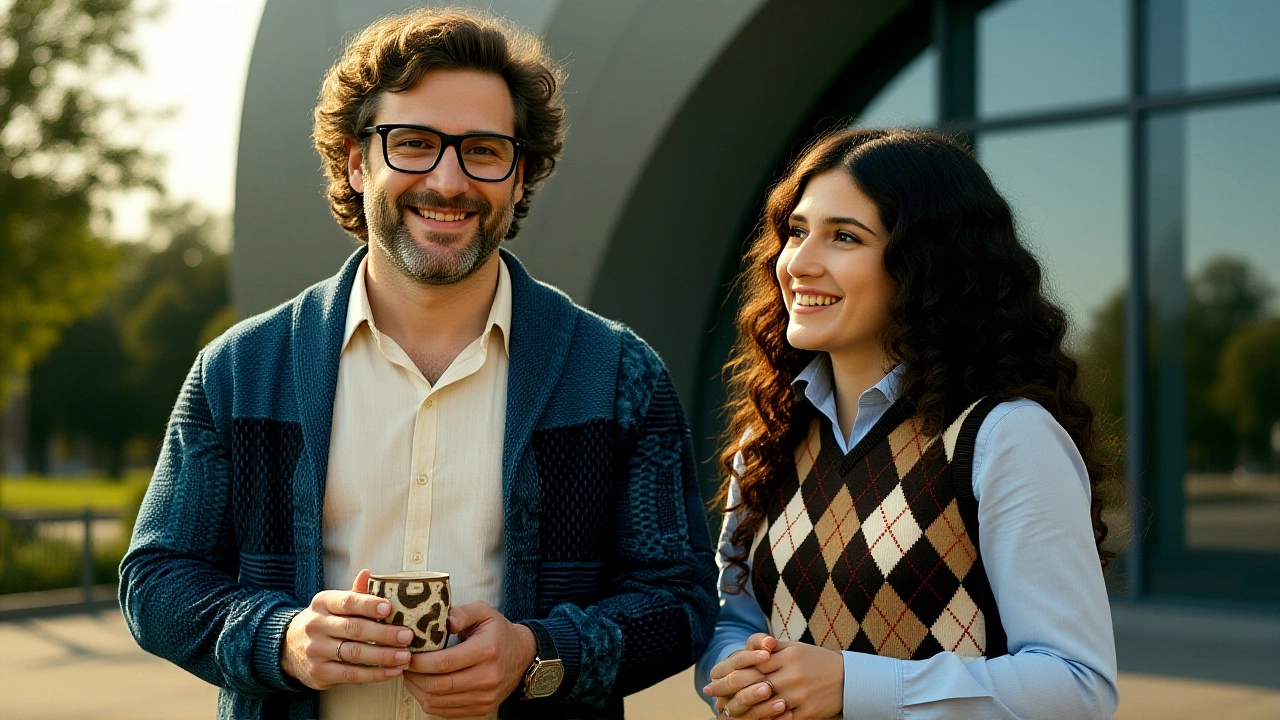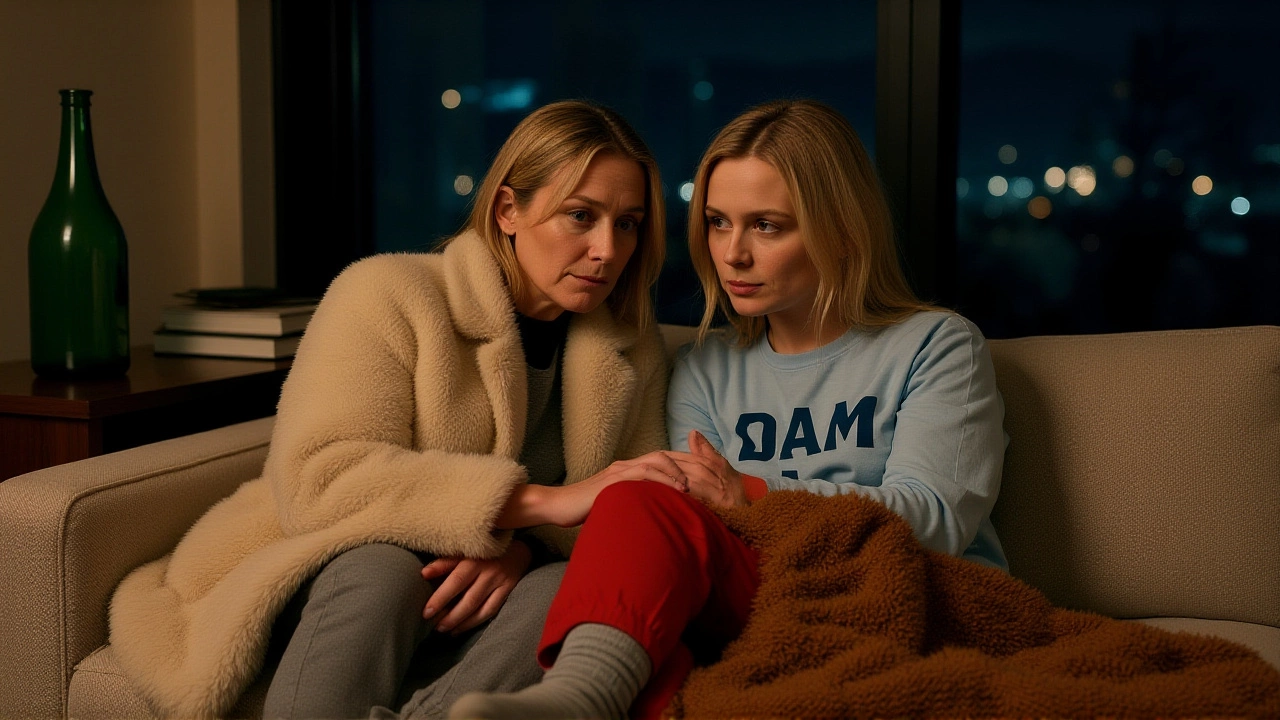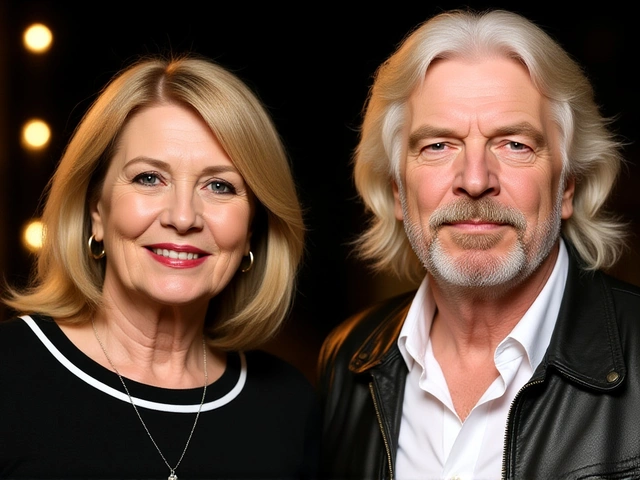When Adam Brody steps onto the screen as Rabbi Noah and Kristen Bell returns as Joanne, the agnostic podcaster on the brink of conversion, fans of Nobody Wants This get another whirl of love‑and‑faith drama in Episode 6, titled “Anything Can Happen.” The episode dropped on Netflix as part of a binge‑release of all ten episodes on February 10 2025, and the moment has already sparked debate across Jewish media circles.
Season Two in Context: A Full‑Binge Release
Unlike the traditional weekly rollout, Netflix chose to drop the entire second season at once, giving viewers the freedom to consume the story at their own pace. The move mirrors trends seen with other limited‑run series, but it also meant that reactions erupted online almost simultaneously.
According to the episode guide compiled by Kveller, a Jewish‑focused media outlet, Season 2 explores deeper questions of identity, community, and the practicalities of interfaith romance. The guide, updated in February 2025, notes that every episode deliberately foregrounds a “biggest Jewish moment,” a framing that has attracted both praise and critique.
Episode 6 ‘Anything Can Happen’: Plot Beats and Key Moments
In the half‑hour titled “Anything Can Happen,” the story pivots to secondary characters, giving the audience a breather from the Noah‑Joanne tension. The most talked‑about scene features Esther confiding in Sasha that she feels “distant” and needs time off to “learn about herself.” This revelation, first reported by DMTalkies in February 2025, adds a layer of personal introspection that many viewers found surprisingly resonant.
Meanwhile, Noah drops a line that has become a meme across social platforms: “You are my soulmate. I don’t care if you’re Jewish or not. I choose you.” The quote was highlighted in a February 17 2025 piece by The Economic Times, underscoring the episode’s central theme – love transcending religious labels.
- Esther’s self‑care moment marks the first time the series directly addresses mental‑health breaks.
- Joanne’s pod‑casting background resurfaces when she records a candid episode about uncertainty.
- Rabbi Noah’s romantic declaration fuels the season’s ongoing debate about conversion pressures.
Characters in Focus: Rabbi Noah, Joanne, and the Supporting Cast
Beyond the two leads, Season 2 expands the universe with fresh faces. Justine Lupe returns as Morgan, a friend whose own relationship with therapist Dr. Andy (portrayed by Arian Moayed) adds a subplot about therapy ethics and cultural expectations.
The series also re‑introduces Bina, a character critics label as “controlling.” In a lively commentary thread on the Substack publication Jewish TV Club, co‑founder Evelyn slammed Bina’s scheming as a tired trope, while Vanessa quipped, “Writers: You’re not rabbis. And it shows!!!” Their remarks highlight a growing fatigue among viewers regarding stereotypical portrayals of Jewish women.

Community Reaction: Jewish Media, Critics, and Viewers
The response has been anything but monolithic. Kveller reports that the series has “made big waves in the Jewish world and beyond,” pointing to heated Twitter threads about conversion ethics, Shabbat observance on set, and the realism of the depicted rituals.
In contrast, the Jewish TV Club subreddit has a running thread titled “Stop the Cliché Sermons,” where members demand more nuanced writing. The same community praised the show’s use of Hebrew phrases, yet they also called out scenes where the script appears to force a sermon for dramatic effect.
Overall, the episode has spurred conversations within synagogues across the United States, with several rabbis using the scene where Noah recites a blessing as a teaching moment about inclusive language.
What’s Next? Hints at Future Seasons and Ongoing Debates
Season 2 concludes with Joanne standing on a balcony, headphones in, listening to her own paused podcast. The camera lingers long enough for viewers to wonder: will she convert, stay agnostic, or walk away? The cliffhanger, coupled with Esther’s personal break, suggests that Season 3 may shift focus from the romance to broader community narratives.
Industry insiders tell us that Netflix is already green‑lighting a third season, but writers are reportedly re‑examining the script to avoid the very pitfalls that critics have flagged. If they succeed, the next batch of episodes could serve as a case study in how streaming platforms handle religious representation responsibly.

Key Facts
- Series: Nobody Wants This
- Season 2 released: February 10 2025 (all 10 episodes)
- Episode 6 title: “Anything Can Happen”
- Main cast: Adam Brody (Rabbi Noah), Kristen Bell (Joanne)
- Key quote: “You are my soulmate. I don’t care if you’re Jewish or not. I choose you.” – The Economic Times
Frequently Asked Questions
How does Episode 6 address mental‑health themes?
Esther’s confession to Sasha that she needs “time off to learn about herself” marks the series’ first explicit nod to mental‑health breaks. The scene sparked discussion on social media, with many viewers praising the show for normalising self‑care within a religious context.
What impact has the series had on Jewish representation on streaming platforms?
Both Kveller and the Jewish TV Club note that the show has prompted synagogues and Jewish educators to use its scenes as teaching tools, while also urging producers to avoid stereotypical tropes, especially around female characters like Bina.
Why did Netflix release the entire season at once?
Executives at Netflix explained that binge‑releases drive higher completion rates for limited‑run series, allowing audiences to discuss plot twists in real time across platforms like Twitter and Substack.
What are the chances Joanne will convert to Judaism?
The finale leaves Joanne undecided, and creators have hinted that Season 3 will explore her decision in depth. Industry insiders say the writers aim to portray conversion as a personal journey rather than a plot device.
How have critics responded to the show’s handling of religious rituals?
Critics from The Economic Times praised the authentic Shabbat scenes, while members of the Jewish TV Club called for more nuanced sermon writing, arguing that some moments feel scripted rather than lived.





Write a comment